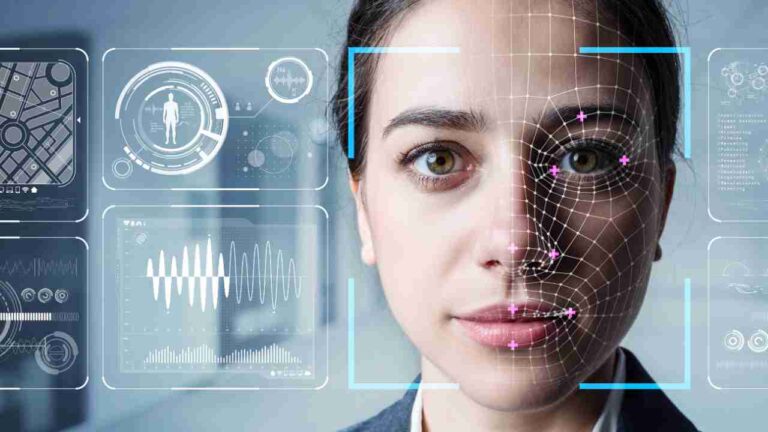How is Artificial Intelligence Shaping EDI?
The insertion of advanced and most promising technologies like Machine Learning and Artificial Intelligence are transforming the world from integrating information to analyzing data to using insights and improving decision-making capabilities.
This new generation of technology represents computational models of intelligence that can be described as structure models, and operational functions programmed for solving problems, processing languages, inferences, etc.
Many sectors have been using and reaping the benefits of Artificial Intelligence by automating all their complex human activities and eliminating errors and biases. Artificial Intelligence technology was standalone in the yesteryears, but now it has widespread in every sphere of life.
Artificial Intelligence can support electronic data interchange empowering business operations and process flows. EDI solutions and AI combined can bring greater automation and accuracy in sharing documents between traders and suppliers.
One of the common problems that partners face is the divergence in how they present order information. Additionally, the information is usually manually keyed and extracted manually too. Here is where the scope of human error comes, such as ‘typos’. Correcting these errors is only feasible with a small distribution network or customer base, but with a large size business transaction, checking and correcting means time and resource consumption, additional costs, and delayed deliveries.
Here is where AI can support. Artificial Intelligence acts as a functional layer facilitating timely processing, identifying the typo mistakes, and other ambiguities to standardize data.
AI can train the system to identify loopholes and fix data across different systems and protocols. The auto-correction can be repeated to avoid human intervention, which is also useful for onboarding new trading connections.
What more we will learn in this article is how influential is Artificial Intelligence. What advanced capabilities can an AI drive beyond EDI exchanges?
Artificial Intelligence and Its Integration Benefits
A technology that is intelligent with the ability to learn, reason, plan, and correct in an almost human way is Artificial Intelligence. AI has been categorized into two primary categories – General and Narrow AI.
General AI is said to be the closest to human intelligence that can learn and make decisions without any human intervention. On the other hand, Narrow AI can handle and perform a single task which is usually not comparable to human intelligence. Narrow AI is most widely used, which is also helpful in enhancing the capabilities of AI.
Qualities of Artificial Intelligence
Intelligence
AI is understood as the conjunction of the two most robust technologies – data analytics and machine learning. The data required for algorithms to process and make useful patterns comes from different sources, such as satellite imagery, visual & digital information, text, or unstructured data.
Machine learning takes these data looking for underlying trends that can help in solving a practical problem. With these insights at hand, designers and developers can use that knowledge and analyze specific issues while spending time on an effective solution.
It’s vital to recognize that AI, as an aspect of this sweeping change, is being extensively harnessed to resolve business challenges. By employing suitable technologies, organizations are streamlining their operational intricacies and driving efficiency. As explained by the folks from BACS Consulting Group, digital transformation is not just about developing a digital presence; it’s about leveraging technology to transform your business processes, services, and operations. AI is increasingly becoming an integral part of this process.
Adaptability
The best thing about Artificial Intelligence is that it can learn and adapt the decisions made. A brilliant example is that of semi-autonomous vehicles that warn drivers of upcoming congestion, highway construction, potholes, or possible impediments. These vehicles can learn from other vehicles on the road without the need for a human to maneuver them where needed. The advanced algorithms, sensors, and cameras incorporate experiences in current operations while the dashboards can display real-time information that showcases ongoing traffic sense and vehicular conditions.
Intentionality
Artificial Intelligence algorithms are crafted to make human-like decisions. However, with the combination of sources aforementioned (sensors, cameras & more), data gathering becomes easy. This valuable information is easy to analyze hence actions can be taken based on the insights. These actions as well as improved storage systems can help process speeds and analytical techniques, capable of tremendous sophistication in the right decision making.
Artificial Intelligence is an effective technology that can shape any other technology. EDI is among the technologies which can be reshaped by AI. Since EDI services also aim for transactions with less human intervention, here are a few capabilities of AI that can better Electronic data interchange.
Automation – Artificial Intelligence was designed to detect data patterns hence it could automate the documents, such as invoices, purchase orders, inventory, account management, and much more. This reduces the human intervention and manual process entry of the data, reducing possible errors.
Validation – Conjuncting with Artificial intelligence, companies can ensure that the data contained within an invoice requires no verification. AI can ensure accuracy by automatically comparing and verifying other documents that are relevant to the transactions.
Deviation Detection – How Artificial Intelligence is different and better than other technologies is because it can identify patterns that seem like errors or deviations. AI can quickly detect deviations, such as addresses or data within the invoice, based on the historical data and notify about it through a report.
Other ways AI and machine learning can correlate to EDI are listed below.
Artificial intelligence – Empowering EDI Systems
Correcting Errors
We already know that EDI automates the B2B processes anyway, then what is the need for adding AI? EDI is a standard methodology to exchange business documents between computers. EDI, no doubt, has replaced manual processes eliminating time, effort, and errors. But with advancing time, legacy EDI is unable to keep pace with the changing needs and demands of the market and customers. The legacy EDI systems require continuous monitoring, which handles a bulk of data processing and halts when an error occurs when humans input information into software programs.
With AI, companies can spot and correct errors in no time. The smart algorithms can detect incorrect data across several documents, pluck the correction into the memory banks, and fix the rest of the documents.
Accurate Document Conversion
EDI consists of several standards, formats, and types like EDIFACT, ANSI X12, TRADACOMS, EDI VAN, EDI AS2, and more. Standards and formats are the modes to communicate with trading partners. EDI mapping and translation programs can be accompanied by AI-enabled programs to ensure accuracy throughout the process. AI can figure out standard document fields and place them in appropriate EDI format that benefits everyone despite the format of the original data.
Auto-Correct
Artificial Intelligence teaches the EDI software to fix typo errors, such as the address or numbers or characters, etc. AI highlights the issues and once you make corrections to the errors, AI can memorize the solution in its memory banks for auto-correcting errors every time.
EDI systems without AI-enabled programs keep making errors and need time and resources to make corrections over and over again.
Identifying Consumer Behavior
Retailers do use machine learning to help them understand consumer behavior. They can identify the specific store that sells the most accessories or products, which is the most selling period or time of the year when inventory levels are high.
When predictive models are put in the right place, these questions can be answered quickly, and retailers will get the help of restocking during rush hours or as per consumer trends. Managing retailing with such accuracy can improve productivity and return on investment.
Keen Attention To Detail
Integrating Artificial Intelligence can empower EDI with the accuracy in detail needed for effective transactions. AI has the ability to scan the data and is smart enough to flag the shipments. Artificial Intelligence can spot even the most detailed insights into the order or shipments. This is called deductive reasoning for flagging the deviations. EDI systems do not have the capability to do so hence, manually this has to be done, but with AI even this is possible.
In a Nutshell
Artificial Intelligence can ensure greater accuracy when converting non-EDI documents into a particular format. Many can reach 100% accuracy when converting in any other type or format of EDI. AI and ML technologies can be incorporated into the EDI systems with the help of a proficient electronic data interchange provider to prevent the need for creating new mapping instances for every minor change in document exchange. Artificial Intelligence can seamlessly detect the change, and prevent companies from making countless errors without the need for human intervention.
There is already significant deployment of artificial intelligence and data analytics such in national security, health care, transportation, retail & more that have altered decision making, business models, risk mitigation, and system performance.
However, these were just a few ways Artificial Intelligence can double the power of an EDI system. We are yet to see more advances in the processes with the conjunction of the two. EDI is no doubt going to stay here for a long time, and coupling it with AI can bring exceptional results that are yet to come.
Author Bio
Scarlett works with the editorial team of A3logics, a leading company offering EDI Insurance Solutions. Exploring the latest technologies, reading about them, and writing her views have always been her passion. She seeks new opportunities to express her opinions, explore technological advancements, and document the details. You can always find her enjoying books or articles about varied topics or jotting down her ideas in a notebook.







